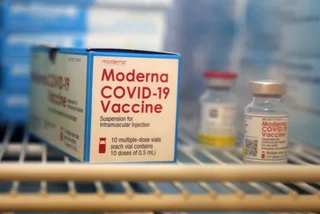The coronavirus risk index remained at 84 points on the 0-100 scale in the Czech Republic for Tuesday, which means the highest fifth degree within the epidemic system PES, but the spread of the infection has slowed down slightly, the morning data from the Health Ministry show.
The Czech government will discuss tightening the current anti-coronavirus measures Wednesday Health Minister Jan Blatný told reporters yesterday.
The cabinet must wait for the data on the numbers of the infected from the next two to three days to assess the situation, he added.
Experts say the effects of the stricter lockdown measures that were put in place on Dec. 27 have started coming to bear in the past few days.
“At any rate, we cannot be considering any relaxation,” Blatný said.
If the daily numbers of new confirmed coronavirus cases started declining, this trend would not be reflected in hospitals earlier than in a week, Blatný said.
The health minister also pointed out that the anti-epidemic measures in the Czech Republic corresponded to those in most surrounding European countries.
The average number of infections per 100,000 inhabitants in the past two weeks also decreased, while the average number of seniors with COVID-19 in the past two weeks slightly increased as against Monday.
The reproduction number, which reflects how many people become infected from one positively tested person on average, decreased from 1.18 to 1.12.
The first doses of the Moderna coronavirus vaccine did not arrive on Jan. 11, as Prime Minister Andrej Babiš (ANO) had indicated would happen.
The first 8,000 doses of the vaccine are now expected to be delivered to the Czech Republic on Tuesday, Jan. 12, Health Ministry spokeswoman Barbora Peterová told ČTK. Originally, the vaccine was to arrive in the Czech Republic on Jan. 22 and the country was to get 20,000 doses during January.
Polling stations and other election infrastructure may be used for COVID vaccination in small Czech towns and villages, Deputy Prime Minister Jan Hamáček said on Tuesday, adding that he has sent the draft methodology to PM Babiš and Health Minister Blatný.
Large vaccination centers will mainly operate in big towns, and polling stations can be used mainly in smaller towns as well as villages. He said there are usually over 100 polling stations in each of the country's 76 districts.
“From my point of view, this is very ambitious. However, based on the existing and well-tested infrastructure, this is a very effective way to have our population vaccinated,” Hamáček said.
If the Czech Republic inoculates 1 million of the elderly, the COVID-19 death rate will drop by 70 percent and if the country vaccinates 2 million of seniors, its fatality rate will fall by another 15 percent, the Center for Modeling of Biological Processes (BISOP) wrote in an analysis.
Latest COVID data from the Czech Ministry of Health (Jan. 12, 2021)
- Active cases 154,721
- New cases 9,294
- Deaths 13,485
- Currently hospitalized 7,132
- Antigen tests performed 1,081,890
- Reported vaccinations 19,918 (*Cumulative number of all reported vaccine doses as of Jan. 6, 2021 at 6 pm. Updated every Thursday).
Source: onemocneni-aktualne.mzcr.cz/covid-19












 Reading time: 2 minutes
Reading time: 2 minutes 






























